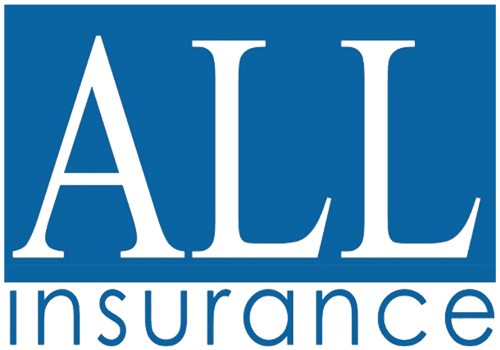A
ACV – replacement cost minue depriciation.
Adjuster – an agent of an insurance company who investigates insurance claims. After investigating the claim, they’ll determine if the claim is covered, and if so, how much you’ll be paid.
Agent – an individual whom is licensed to sell insurance on behalf of an insurance company.
Appraisal – a professional assessment of your property to determine its value.
B
Bodily Injury – bodily harm, sickness, or disease, including death that results from the harm, sickness, or disease.
Broker – an individual that acts or aids in the negotiation of insurance contracts, inplacing risks, or in soliciting or effecting contracts, as the agent of the applicant/buyer and not as the agent of the insurance company.
Burglary – the taking of property form within a premises by a person unlawfully entering or breaking out of a premises as evidenced by marks of forcible entry or exit.
C
Cancellation – the termination of your insurance policy by either party.
Claim – when you make a request to your insurance company to pay you after a loss.
Coverage – the protection against financial loss provided by an insurance contract.
Credit based insurance score – a number that is calculated using information from your credit report.
D
Damage – physical harm to or loss of property.
Damages – a sum of money that compensates an injured party (individual or organization).
Declarations page – the page in a policy that shows the name and address of the insurer, the period of time a policy is in force, the amount of the premium and the amount of coverage.
Deductible – the amount of the damage or loss that you’re responsible for before your company pays on a claim. Higher deductibles allow insurance companies to offer reduced premiums. Lower deductibles will increase the amount of the premium you will pay.
Direct Loss – a loss or damage as a direct result of a covered peril or cause of loss.
E
Effective date – the date that your coverage goes into effect.
Endorsement – an add-on to your insurance policy that changes the coverage provided in your policy.
Expiration date – the date on which your policy expires.
Exposure – the susceptibility to suffering a loss.
H
Hazard – a condition, circumstance,or situation that makes the occurrence of a loss more likely.
I
Insurable Interest – a financial interest a person has in the object being insured.
Insurance – a technique or business of transferring the risk of an individual or organization to another by means of a contract.
Insurance contract – the document that is the agreement between your insurance company and you (the policyholder) detailing the terms and conditions of your insurance coverage.
Insured – the policyholder; the person(s) protected in case of a loss or claim.
Insurer – the insurance company that provides insurance coverage and services.
L
Lapse – a policy that ends because the premium amount was not paid.
Limits – the maximum dollar amount of protection purchased by the policyholder for specific coverages.
Loss – the injury or damage sustained by the insured that the insurance company agrees to cover.
Loss history – the losses you have suffered, and their values, over a certain period of time.
M
Market Value – the value of property as determined by the amount of money people would pay for the property, knowing all the relevant facts.
Mutual insurance company – an incorporated insurance company that’s owned by its policyholders.
N
Negligence – when a person doesn’t exercise reasonable care in a given situation, they may be considered to be negligent.
Non-renewal – the action by the insurance company to terminate insurance coverafe at the expiration date or anniversary date of the policy.
O
Over-insurance – When the limit of insurance exceeds the value of the property insured.
Occurence – an accident, including continuous or repeated exposure to substantially the same conditions.
P
Perils – a cause of loss
Policy – a formal written contract of insurance.
Policyholder – the person who applied for, pays for and is issued the insurance policy.
Policy period – the period of time for which the insurance policy provides coverage.
Premium – the amount of money an insurance company charges to provide coverage.
R
Rate – a number that, when multiplied by a limit of insurance or a measure of exposure, determines your premium
Reinstatement – when your policy goes back into force after it lapsed due to nonpayment of premiums.
Replacement Cost – the cost to replace damaged property with like kind and quality without taking into account depreciation.
Risk – the chance that a loss may occur.
Robbery – the unlawful taking of property from a person by actual violence or threat of violence.
S
Subrogation – in insurance, subrogation substitutes one party (insurer) for another party (insured) in order to pursue any rights that the insured may have against a third party who is liable for a loss.
Surcharge – when an insurance company increases your rate due to a factor that increases your likelihood of suffering a loss.
T
Term – the length of time covered by a policy.
Theft – any act of stealing.
U
Underwriter – the person who accepts or rejects risks for an insurance company.
Underwriting – the process an insurance company uses to decide whether to accept or reject an application for a policy.
W
Worker’s Compensation – insurance that provides compensation to a worker when the worker cannot continue to work.
Wrongful Termination – termination of an employee in retaliation for filing a worker’s comp claim.
Glossary of basic insurance terms. Glossary of Basic Insurance Terms | American Family Insurance. (n.d.). Retrieved August 30, 2022.

